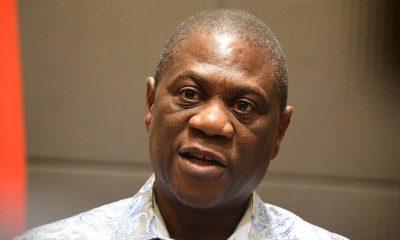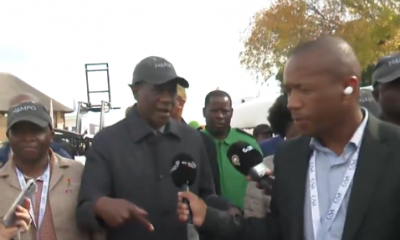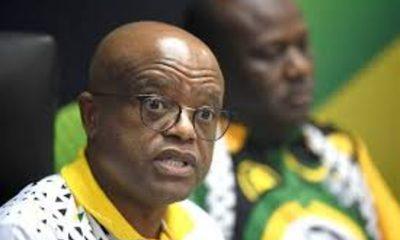Opinion
The Real Reason Behind the Smear Campaign Against Mashatile

As Deputy President Paul Mashatile steps further into the national spotlight, the media backlash against him seems to be intensifying. But it’s not just political analysis at play here — what we’re seeing is a coordinated effort by certain media voices to discredit a leader they cannot control.
Mashatile’s rise through the ANC ranks, his roots in township activism, and his strong grassroots support make him difficult to box in. And for parts of South Africa’s white-dominated media establishment, that’s a serious problem.
A familiar media playbook
We’ve seen this before. Black leaders who grow through community structures and build loyal networks are often targeted in the same way: their work is downplayed, unverified claims are given credibility, and their reputations are chipped away at in the name of “objective journalism.”
It happened with Mandela. It happened with Malema. Now, it’s happening with Mashatile.
The real concern isn’t about Mashatile’s qualifications or record — it’s that he’s a politically sharp, grounded figure who doesn’t bend easily to elite pressure. That makes him an unpredictable force in the ANC’s future and a threat to the power some media outlets believe they should hold. Mashatile’s journey in politics started during the liberation struggle in Alexandra, where he was arrested for activism. Since then, he has held multiple government positions — from MEC and premier of Gauteng to minister of arts and culture.
Also Read: Tokyo Sexwale Endorses Paul Mashatile for South Africa’s Presidency, Urges End to ANC Infighting
In each role, he delivered results: improved housing, infrastructure projects, and a strong focus on community development. His work in arts and culture wasn’t just symbolic — it helped bring new voices into the national conversation and built a foundation for a creative economy.
But those achievements are often left out of the narrative. Critics prefer to focus on vague associations or repeat claims without evidence, painting him as part of an “Alex Mafia” rather than a capable leader with a long service record.
Double standards and race
The way Mashatile is treated in the media stands in sharp contrast to how white leaders are handled. When they form political networks, it’s called “strategic.” When Mashatile does the same, it’s labelled “dangerous.”
Failed projects under DA leadership are often brushed aside as mistakes. But when Mashatile oversees success, it’s explained away as someone else’s work.
These double standards reflect more than just bias — they reveal a discomfort with the idea of a black leader who isn’t easily influenced or boxed into neat categories. With the ANC heading toward its national general council in 2025 and its elective conference in 2027, expect more of this kind of coverage. But party members — not media owners — will decide the future leadership.
Mashatile should face scrutiny like any potential president. But that scrutiny must be fair, honest, and free of racial undertones. Right now, too much of it is driven by fear, not facts.
Authentic leadership will always face resistance from the powerful. But as history shows, when the time comes, no smear campaign is strong enough to stop real change.
Follow Joburg ETC on Facebook, Twitter , TikTok and Instagram
For more News in Johannesburg, visit joburgetc.com
Sourced: Sunday World
Picture: ANC


























